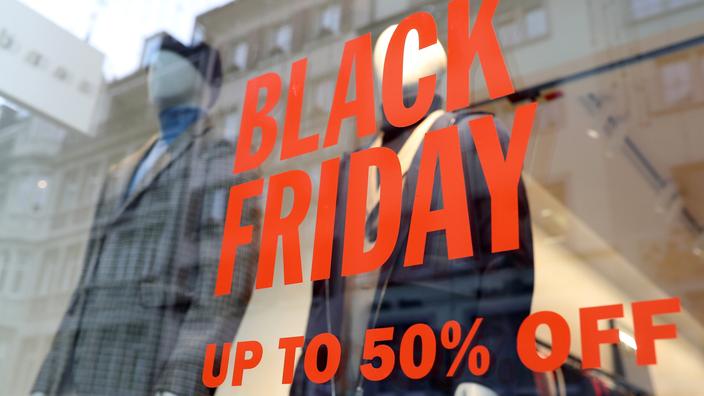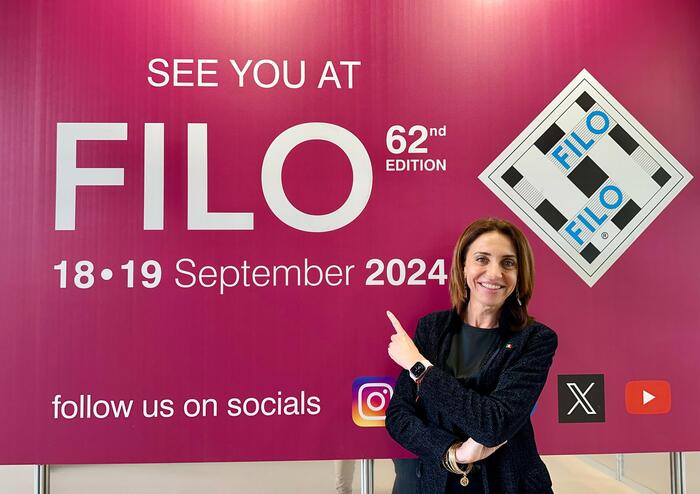Maxime De Blasi is a former student of ENA, essayist and
singer-songwriter
.
Who says they are opposed to product recycling? Like many people, I have been sorting my waste for 20 years by separating paper, plastic, glass and no one disputes the interest of reusing materials, tools, devices at the end of their use to give them a second life and avoid the production of waste. 'a new product or the consumption of material.
But what reality does the adjective "recyclable" cover? You have to realize that a green dot or a logo in no way symbolizes the recyclable nature of a product, even less that it will be recycled, but that the producer pays a tax to the approved Citeo organization! Indeed, even for plastic bottles stamped "PET", "recycling" is not the reuse of one of the 13 billion bottles produced each year in France which would avoid producing another but its crushing and melting. to make balls or bricks. Because "recycling" is almost always done at the cost of degradation of the material, the transformation greatly reducing its quality. After a 20-year fight, the association UFC-Que Choisir has just obtained the disappearance of this "green point" [1] so misleading,endorsed by the circular economy law of February 10, 2020.
The 6 million tonnes of plastics (!) Consumed per year in France are only 28% “recycled”.
The majority are cremated, buried or end up in the oceans.
Maxime De Blasi
According to Citeo (which represents distribution companies and is responsible by the State for implementing "recycling" solutions) only one in two French people sorts their household packaging, either because they want to do so, or able to do so (presence of collection points, a differentiated collection system). The rate of “recycling” stagnated around 68% of the volume of household packaging materials produced, when in 2009 the Grenelle 1 law had set a target of 75% for… 2012. By type of material, steel would be recycled [ 2] at 100%, glass at 85%, paper and cardboard at 64%, aluminum at 48%. Metal is the most recyclable: easy to locate and recover, even if buried or dispersed, its cost makes its recovery process more solvent, scrap dealers are theone of the oldest professions in the world! Paper and cardboard, made from plant essences, are reusable with a drop in quality each time.
On the other hand, the 6 million tonnes of plastics (!) Consumed per year in France are “recycled” at only 28%.
The majority is incinerated, buried or ends up in the oceans: the sellers of mineral water and sodas, despite the power of their communication and the affixing of the misleading term "recyclable", with green dots, can only hide a bottle. pollutes a hundred times more than using tap water.
Researcher Nathalie Gontard echoed these illusions of recycling [3].
Read alsoThe State wants to accelerate on recycling
Worse still, with the pandemic and home delivery, plastic packaging has exploded, which represents half of the 70 kilograms consumed by each French person per year. Everyone can see that we are drowned in plastic, with which our trash cans are overflowing! Its use is not optimized in view of the generality of thick, indestructible plastic packaging, in total disproportion of durability with what they contain.
Regarding the "recycling" of devices, according to Ecosytem, which organizes the collection, reuse, repair of electrical and electronic equipment, that of electronic devices (screens, televisions, computers, mobile phones) is only 50%.
Here again, this notion must be clarified in this field where technological obsolescence and the mixture of plastics, metals, solvents, make recovery difficult.
In practice, many end up abroad under the guise of reuse, an export of toxic waste that does not speak its name [4].
Due to lack of capacity or organization, part of the waste sorted at home is not treated and ends up with the general flow.
Maxime De Blasi
Thus, those that are recycled the least are the types of products and materials the most polluting for the environment and health, in view of the damage to species and the time bomb of the ingestion of microparticles from the decomposition of plastic. in water and fish, with a duration of at least 500 years: an eternity for these residues of our ephemeral desires of consumption.
The burst of “recycling” that governments constantly promise forgets that it requires a complex and flawless organization: the consumer called upon to sort his waste, who is not the least to be mobilized;
a differentiated collection system that sends the right waste to the right place.
However, due to lack of capacity or organization, part of the waste sorted at home is not treated and ends up with the general flow.
Read alsoClothing recycling, a relay to revive the industry in France
In addition, the reality hidden in the balance sheets is that this process costs energy to transport materials and transform them. The recycling of glass bottles is presented as a success because 85% are “recycled”… but at what cost? Candide returning to the 21st century would be astonished by our strange practice of… first breaking them and then reconstituting them into a glass of inferior quality, for a debauchery of organization and consumption of energy! With a deposit (including a timid return - especially not to offend the large distribution - is provided for by the resilience and climate law of August 22) the results would be much better: all you have to do is collect the bottles to disinfect them and repackage them. Neither fusion energy nor loss of quality.
No definitely, there is no groundhog that collects, does not lose any material on the way and transforms it into a reusable form, without energy!
The truth to be addressed is that any production of goods has a direct or indirect ecological impact and that
the only way to pollute less is to consume better - and especially less - and not to hide behind a term, "recyclable". Which does not represent reality.
Like Talleyrand, relying on Fouché, consumerism relies on the fiction of the “recyclable”, a misleading adjective which must be banned for the most sincere “recyclable”.
As Black Friday arrives, the climax of consumerism, the “recycling” argument emerges as the good conscience,
individual and collective
, that justifies it. The implicit discourse addressed to consumers is “consume without restraint, renew, it's recyclable” but the link is false. The assertion that we hear over and over again "
this product is recyclable so its purchase is good for the planet
", is the convenient crutch on which unbridled consumerism thrives.
Such as Chateaubriand describing the improbable couple of Talleyrand supported by Fouché in
The Memories from beyond the grave
with the formula "
vice leaning on the arm of crime
", to better endure consumerism is based on the fiction of "recycling". It is crucial to realize that a packaging, a product, presented as "recyclable" expresses only one
faculty
(of the suffix "able" in French and in English), far from being realized as the figures show it. .
The use of this misleading adjective should no longer be tolerated by the public authorities!
The truth will then be re-established for many types of waste, particularly plastics, because it is so dishonest and false to define “recyclable” a product which is recycled at a few percent of its production and whose final product is degraded.
Replacing it with "recyclable" is much more honest to reflect this degradation of quality and transformation of the initial use.
“Decyclable” raises awareness of the irreversibility of the consumption of a product.
Read alsoRecycling: from waste to object
Late for a government that has only succeeded in banning straws and plastic cups, progress will be visible on January 1, 2022: most fresh fruits and vegetables will be sold without packaging, against 37% today. Further measures of the 2020 anti-waste law will take effect next year. Finally, we are going beyond the so-called ban on plastic bags which everyone sees does not correspond to reality! The “resilience and climate” law introduces a display on environmental impacts “
in terms of greenhouse gas emissions, damage to biodiversity and consumption of water and other natural resources
”.
But we must go further, by financially encouraging individuals to bring back their old electronic devices by means of a check or a deposit, because who does not have several cell phones, downgraded and out of service devices which contain precious metals, economically recoverable within the framework of an organized and reliable recycling channel?
France as a lesson-giver (
Macron's
“
make our planet great again
” addressed to Trump in 2017) can and must become the first European country to really fight against the too convenient use of packaging plastic.
Maxime De Blasi
Regarding plastics, the anti-waste law requires integrating 30% of “rPET”, a new type of truly recycled plastic in bottles ... but in 2030! Since we make the French feel guilty with “The Burning House”, why wait 10 years for this ridiculous percentage imposed on bottles alone? It is at the source, in terms of producers and mass distribution, that we have to change our logic! Thinking differently, the packaging, the sale of water and sodas. Who does not see that soda bottles are disproportionately thick compared to what they contain, just like most plastic trays and bottles: why not put a limit between the weight of the plastic container and its contents? ?
All plastic bags, even so-called “reusable” bags, should be banned without delay and replaced with untreated paper or fabric. Plastic-free packaging must emerge, in thin metal, aluminum or untreated cardboard, all the more viable if they are widespread. Because if we integrate the (considerable!) Cost of recycling (organization, energy, taxes, without forgetting the hidden cost, environmental and health) we make the more expensive biodegradable or truly “recyclable” materials solvent.
France as a lesson-giver (
Macron's
“
make our planet great again
” addressed to Trump in 2017), which in five years has only succeeded in banning plastic straws or almost, can and must become the first European country to fight actually against the too convenient use of packaging plastic.
Beyond the beautiful formulas, blatant COPs, many consumers are ready to understand and adapt to it.
[1] https://www.quechoisir.org/actualite-point-vert-une-disparition-tant-attendue-n87807/
[2] https://www.citeo.com/le-mag/les-chiffres-du-recyclage-en-france/
[3]
https://www.nouvelobs.com/planete/20190612.OBS14290/dechets-plastiques-la-dangereuse-illusion-du-tout-recyclage.html
)
[4] https://www.nouvelobs.com/ecologie/20210511.OBS43882/tribune-pour-sauver-la-planete-nous-avons-un-devoir-de-deconnexion.html









/cloudfront-eu-central-1.images.arcpublishing.com/prisa/V22MUF36WRCMFMYVPT2JTWATUU.jpg)





